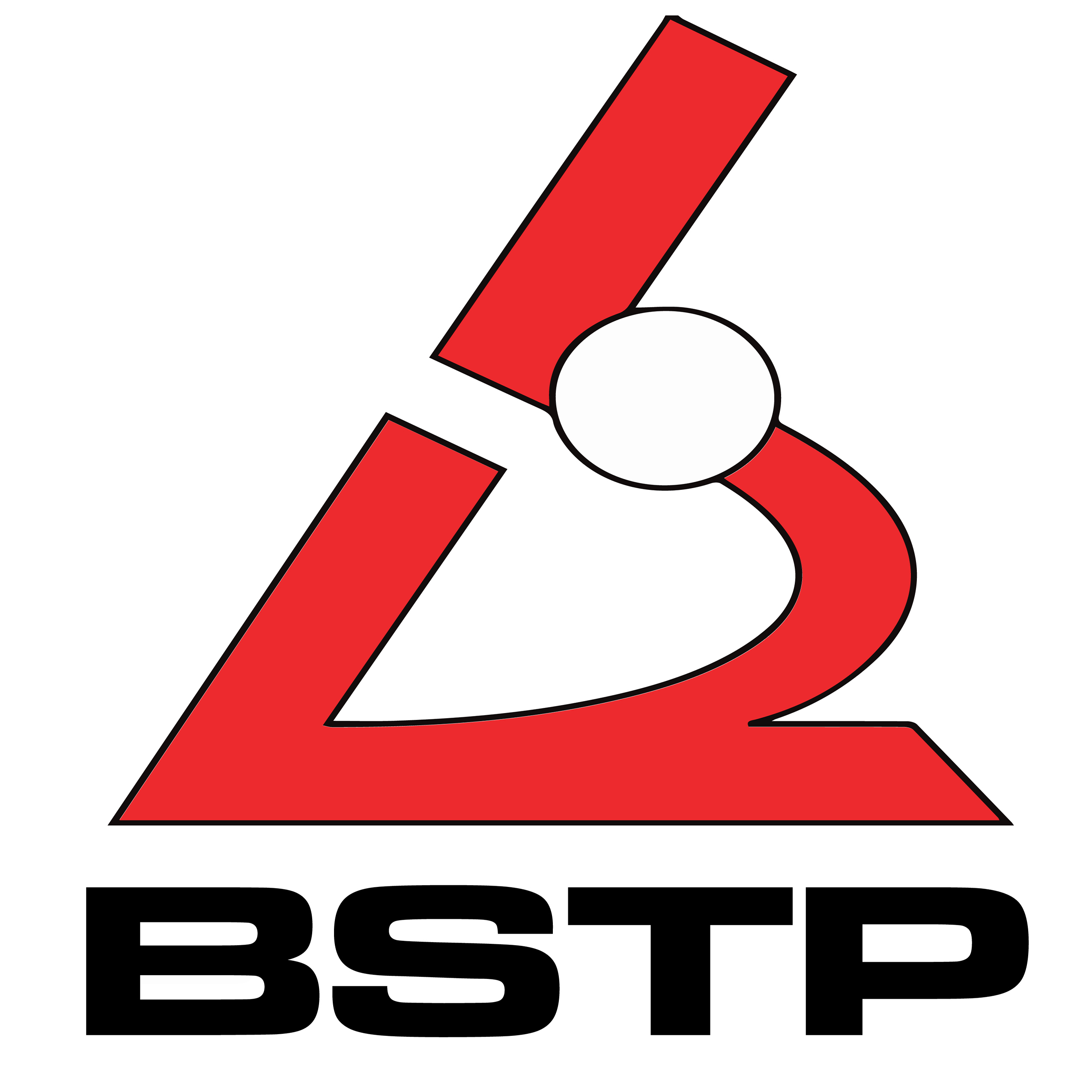
The EMA may collect and further process some personal data of stakeholders and interested parties who submit contributions to the consultations. For more information, see Specific privacy statement for public and targeted consultations.
For more information on the European regulatory system for medicines, please click here (brochure available in all languages).
EMA communication: "Human Medicines Highlights" Newsletter - February 2024 issue
We are pleased to send you our latest edition of the monthly Newsletter which includes decisions by our Scientific Committees and updates on medicines safety. We hope that you will find this useful and welcome any feedback.
You can access the Newsletter by clicking here. Previous editions can also be found on this page.
EMA communication: Veterinary Medicines Highlights
Quarterly news, activities and interviews from EMA Veterinary Medicines Division" Newsletter - April 2024
Welcome to the 16th edition of the Veterinary Medicines newsletter. As we move into Q2 of 2024, the Veterinary Surveillance and Regulatory Support Department is looking ahead at the ‘to-do’ list for the coming months.
You can access the Newsletter by clicking here.
EMA consultation: VICH GL22(R) Studies to evaluate the safety of residues of veterinary drugs in human food: reproduction testing (Revision 1)
The European Medicines Agency has published for public consultation on “VICH GL22(R) Studies to evaluate the safety of residues of veterinary drugs in human food: reproduction testing (Revision 1)”.
In order to establish the safety of veterinary drug residues in human food, a number of toxicological evaluations are required, including the assessment of any effects on reproduction. The objective of this guideline is to ensure international harmonisation of reproduction testing that is appropriate for the evaluation of effects on reproduction from long-term, low-dose exposures; these effects may be encountered from the presence of veterinary drug residues in food.
Comments should be provided using this template and sent to vet-guideline@ema.europa.eu by 31 July 2024.
The EMA may collect and further process some personal data of stakeholders and interested parties who submit contributions to the consultations. For more information, see Specific privacy statement for public and targeted consultations.
EMA communication: Multi-agency report highlights importance of reducing antibiotic use
Countries that have decreased their consumption of antibiotics in both animals and humans have seen a reduction in antibiotic-resistant bacteria. This is according to the fourth joint report on the integrated analysis of the consumption of antimicrobial agents and occurrence of antimicrobial resistance (AMR) in bacteria from humans and food-producing animals (JIACRA IV), published by the European Centre for Disease Prevention and Control (ECDC), the European Food Safety Authority (EFSA), and the European Medicines Agency (EMA).
Taking a One Health approach, which recognises the connection between the health of people and animals, the report presents data primarily collected between 2019 and 2021 on antibiotic consumption and AMR in Europe.
Full details about the project and the 4th joint report are available here.
EMA consultation: Call for scientific data for the periodic review of herbal monographs
The European Medicines Agency has published 11 calls for scientific data for the periodic review of the following herbal monographs:
- Oleae folium
- Plantaginis ovatae semen
- Plantaginis ovatae seminis tegumentum
- Polypodii rhizoma
- Agni casti fructus
- Echinaceae angustifoliae radix
- Echinaceae pallidae radix
- Echinaceae purpureae herba
- Echinaceae purpureae radix
- Ribis nigri folium
- Cimicifugae rhizoma
Scientific contributions should be sent to hmpc.secretariat@ema.europa.eu by 15 May 2024.
The EMA may collect and further process some personal data of stakeholders and interested parties who submit contributions to the consultations. For more information, see Specific privacy statement for public and targeted consultations.
EMA communication and public consultations on veterinary medicines
The European Medicines Agency has published the following news and public consultations on veterinary medicines:
EMA has just launched the new Antimicrobial Sales and Use (ASU) Platform to support the collection of data by Member States on the sales and use of antimicrobials in animals.
As of January 2024, all Member States in the European Union (EU) and European Economic Area (EEA) must submit these data annually to the Antimicrobial Sales and Use (ASU) Platform. This new obligation was introduced by the Veterinary Medicinal Products Regulation (Regulation (EU) 2019/6) as one of the measures to fight antimicrobial resistance.
The main aim of the guideline is to advise on the data to be presented in applications for a marketing authorisation of live recombinant vector vaccines, taking into account their particular properties. The objective of this guideline is to define what should be presented in the quality, safety and efficacy part of the application taking into account the particular properties of live recombinant vector vaccines in the target and non-target species, including the natural host of the parental organism (where relevant).
Comments should be provided by 31 May 2024 using this template. The completed comments form should be sent to IWP@ema.europa.eu.
This guideline replaces the previous Guideline for veterinary medicinal products for zootechnical purposes (7AE7a), which has been in force since September 1992. The main purpose of this revised guideline is to provide more detailed guidance regarding data requirements for the conduct of pre-clinical studies and clinical trials for veterinary medicinal products for zootechnical purposes, and to provide harmonised guidance for the inclusion of information on hormonal protocols to the product information of such products. Moreover, as these products are administered to healthy animals, particular attention is paid to target animal safety and animal welfare.
Comments should be provided by 31 May 2024 using this template. The completed comments form should be sent to vet-guidelines@ema.europa.eu.
The EMA may collect and further process some personal data of stakeholders and interested parties who submit contributions to the consultations. For more information, see Specific privacy statement for public and targeted consultations.
EMA communication: Guideline on quality, safety and efficacy of veterinary medicinal products specifically designed for phage therapy
The Committee for Veterinary Medicinal Products (CVMP) adopted a guideline on quality, safety and efficacy of veterinary medicinal products specifically designed for phage therapy at its October 2023 meeting.
Phage therapy is a potential alternative to combat bacterial infections, or a complement to antibiotic therapy. Some studies show that phage-antibiotic synergies are characterised by a reduced emergence of antibiotic and/or phage resistance in bacteria.
Regulation (EU) 2019/6 states that veterinary medicinal products specifically designed for phage therapy are considered novel therapies and, as such, the Novel Therapies and Technologies Working Party (NTWP) developed a guideline to address the regulatory, technical and scientific requirements applicable to veterinary medicinal products specifically designed for phage therapy.
This pioneering document within the European regulatory framework aims primarily to facilitate and to guide the authorisation path of bacteriophage products. Additionally, by providing a well-defined regulatory pathway, this guideline seeks to encourage the development of these innovative therapies, offering the necessary support to pharmaceutical companies to successfully bring their phage therapy products to the European market.
The newly adopted guideline represents a fundamental step towards the promotion of animal and human health as envisaged by the One Health approach.
For more details on this topic, please click here.
EMA communication: EU Veterinary Big Data Workplan to 2025
We are pleased to announce the publication of the 4th Big Data Steering Group Workplan 2023-25 on the EMA website.
In line with the agreed Big Data Steering Group (BDSG) recommendations, the updated workplan continues to evolve to further enable the use of big data and establish their value to support the EU regulatory decision making process, to continue collaborative and harmonisation efforts at a global level and to engage with all stakeholders and partners.
The EU Veterinary Big Data Workplan to 2025 has been added, detailing the plans to increase the use of big data in the veterinary domain.
Please feel free to disseminate this email to anyone else who might be interested in this information.
EMA communication: 3Rs Working Party meeting report on use of animals in the regulatory testing of medicines
The EMA has a long-standing commitment towards the application of the principles of Replacement, Reduction and Refinement (3Rs) in regulatory testing of human and veterinary medicinal products (HMPs and VMPs). This commitment is driven by the requirements as per Directive 2010/63/EU, as well as by the crucial need for better tools to predict quality, safety and efficacy of new medicinal products.
The newly established 3Rs Working Party (3RsWP) is a joint working party of the Committee for Medicinal Products for Human Use (CHMP) and the Committee for Veterinary Medicinal Products (CVMP). It advises these committees on all matters concerning the use of animals in the regulatory testing of medicines, with particular focus on the application of the so-called 3Rs principles - replace, reduce and refine.
In February 2023, the 3RsWP held a two-day plenary meeting to showcase the Agency's commitment to ensuring the implementation of 3Rs principles in the development and evaluation of human and veterinary medicinal products.
The aim of the public session was to present the 3RsWP work plan and to give an opportunity to stakeholders to comment and provide their views on the working party's activities.
We are pleased to share with you the meeting report, which shows an overview of the input received from stakeholders during the meeting and the future activities of the Working Parties.
EMA communication: Progress with EU-US mutual recognition agreement for inspections for veterinary medicines
On 31 May 2023, the European Union and the United States have made important progress towards enabling mutual recognition of inspections of manufacturing facilities of certain veterinary products. The Food and Drug Administration (FDA) has recognised the capability of 16 EU Member States to carry out good manufacturing practice (GMP) inspections for certain veterinary products at a level equivalent to the US. At the same time, the EU also recognised the FDA as an equivalent authority for GMP inspections of sites manufacturing veterinary medicines.
This follows the extension of the scope of the mutual recognition agreement (MRA) between the EU and the US to veterinary products on 11 May 2023.
The Member States whose GMP inspections for veterinary medicines are recognised by the FDA are Austria, Belgium, Bulgaria, Denmark, Estonia, Finland, France, Greece, Hungary, Ireland, Luxembourg, Netherlands, Poland, Portugal, Slovenia and Spain.
Teams from the European Commission (EC), EU national competent authorities (NCAs), EMA and the FDA continue working closely to ensure the timely assessment of the remaining 11 competent authorities of Member States now that the difficulties brought about by the COVID-19 pandemic have been largely removed.
The MRA allows regulatory authorities in the EU and the US to rely on the results of inspections of manufacturing sites for veterinary products conducted in the respective territories of the parties. The aim is to strengthen reliance on the inspection expertise and resources between EU and US regulators. From now on, the FDA should rely on inspections conducted by these 16 Member States also for veterinary products and EU Member States and EMA will rely on inspections conducted by the FDA.
Benefits of the MRA for EU authorities and the FDA include:
- the ability to focus inspection resources on other parts of the world where active pharmaceutical ingredients and medicines for the EU or US markets are manufactured;
- prioritising inspections of medicine manufacturing sites for higher-risk cases;
- reassuring users that they can rely on the quality, safety and efficacy of all medicines, no matter where they have been manufactured;
- improving the regulators’ ability to identify and address potential problems at manufacturing sites before they become a public health risk;
- reducing the administrative burden and costs from duplicative inspections for pharmaceutical manufacturers, including smaller producers.
- reliance on inspections conducted by the MRA partner waives the need for inspections during assessment of a marketing authorisation application or variation and hence contributes to faster access to medicines.
For more details please click here.
EMA communication: Reducing risks to human and animal health from exposure to N-methyl pyrrolidone in veterinary medicines
On 8 December 2022, EMA’s veterinary medicines committee, the CVMP, recommended new measures to reduce the risks from exposure to the excipient N-methyl pyrrolidone (NMP) for women who may handle NMP-containing veterinary medicines and animals that are given these medicines. The recommendations address inconsistencies in the product information of veterinary medicines containing NMP, which are marketed in many European Union (EU) Member States. For more details on the CVMP recommendations, please consult the procedure page.
NMP is an excipient used in some veterinary medicines that is classified as a teratogen (a substance that can cause birth defects following exposure during pregnancy) in laboratory animals. There is therefore the possibility that NMP could cause birth defects in children of women who handle or come into contact with NMP-containing medicines during their pregnancy, and in the offspring of animals given these medicines.
More than 1,100 veterinary medicines containing the excipient NMP are available in the EU under various trade names and in different formulations, for use mainly in companion animals and large farm animals. These medicines are available as injections, solutions for infusion, spot-on and pour-on products, shampoos, sheep dips, sprays and concentrates for oral solutions for use in the drinking water of animals or solutions for fish treatment.
The review of veterinary medicines containing NMP is the first referral under Article 82 of Regulation (EU) 2019/6 which was introduced as part of the new EU veterinary medicinal products regulation. The CVMP recommendations were sent to the European Commission, which issued an EU-wide legally binding decision on 28 March 2023.
This communication and related content are published here.
EMA communication: Big data use for public health: publication of Big Data Steering Group workplan 2022 - 2025
The Big Data Steering Group set up by EMA and the Heads of Medicines Agencies (HMA) has published its third workplan that sets key actions to be delivered between 2022–2025.
The new workplan will allow to further enhance the efficient integration of data analysis into the evaluation of medicinal products by regulators. Using novel technologies and the evidence generated from big data will benefit public health by accelerating medicine development, improving treatment outcomes and facilitating earlier patient access to new treatments.
The former Big Data Task Force carried out a thorough assessment of the challenges and opportunities posed by big data in medicines regulation, which culminated in 2020 in the publication of priority recommendations for regulators on the best approaches to use and generate data. The joint HMA-EMA Big Data Workplan 2022–2025 follows the key recommendations and includes mainly activities related to medicines for human use. However, the scope of some activities covers veterinary aspects, and a separate section in the workplan is fully dedicated to veterinary medicines.
For more details on the workplan’s deliverables and timelines, please click here.
New EMA video on veterinary medicines
We are pleased to inform you that EMA has launched a video to promote the Veterinary Medicines information website.
Launched in January, the website is a one-stop shop for livestock farmers, pet owners and veterinarians to access up-to-date and reliable information on all authorised veterinary medicines in the EU, enabling them to make informed decisions to protect the health of their animals. Thanks to this new platform, everyone can now easily find out where medicines for animals are authorised and available across Europe. The availability of safety information on these medicines is also highlighted with a reference to the veterinary database.
Share, comment or like our posts on LinkedIn and Twitter and on the joint EU agencies Instagram account (one_healthenv_eu).
We are pleased to inform you that the EMA has published its academia collaboration matrix action plan that sets out how the Agency intends to create closer ties with academics and researchers in the next two and a half years.
It lists actions in five areas identified in EMA's Regulatory Science Strategy to 2025:
- Regulatory science and partnerships;
- Innovation and support to academia;
- Communication;
- Events strategy;
- Trainings.
Consult the action plan:
- https://www.ema.europa.eu/en/academia
- https://www.ema.europa.eu/en/partners-networks/academia#framework-for-collaboration-section
To learn more about how EMA interacts with academia, please click here.
The EMA is pleased to inform you about the decision to waive all fees for scientific advice for academic researchers developing orphan medicines, to further encourage the development of treatments for rare diseases.
The academic sector plays an important role in the development of innovative medicines. Their scientific research is often at the source of novel methodologies and innovative medicines with a potential to benefit patients with rare diseases.
Early interaction with EU regulators is important for academia to understand the regulatory requirements and allow the generation of robust evidence needed to establish the medicines’ benefits and risks. This helps them to navigate the regulatory process and ultimately to translate their discoveries into authorised, patient-focused medicines.
Eligible applicants will include public or private higher education establishments awarding academic degrees, public or private non-profit research organisations whose primary mission is to pursue research, and international European interest organisations. These entities should not be financed or managed by private for-profit organisations in the pharmaceutical sector or have concluded any agreement with pharmaceutical companies concerning their sponsorship or participation to a specific research project for which a fee exemption is sought.
Please check the news item on the EMA’s website, or view the dedicated posts on Twitter and LinkedIn for more information regarding the academic fee waiver.








